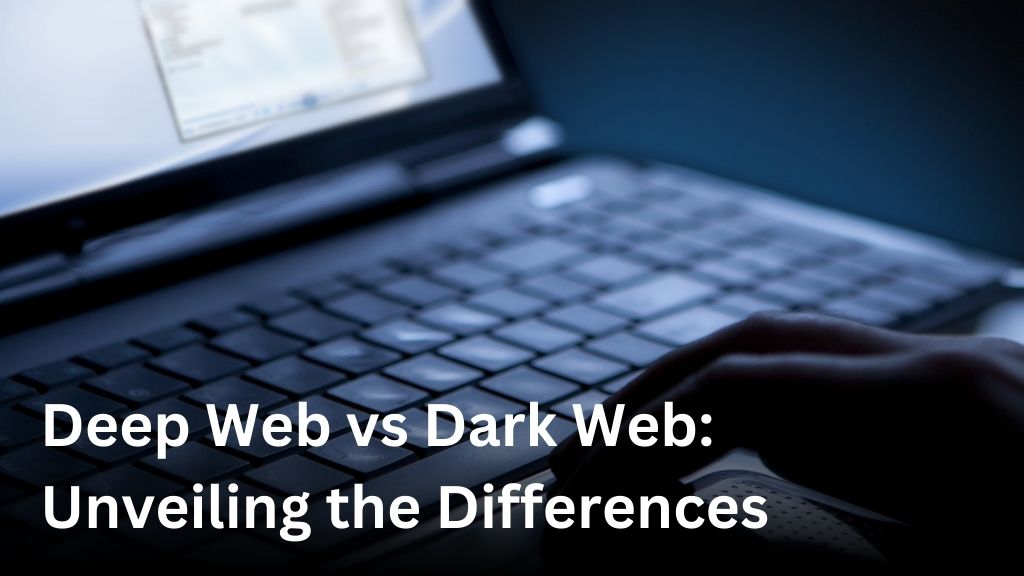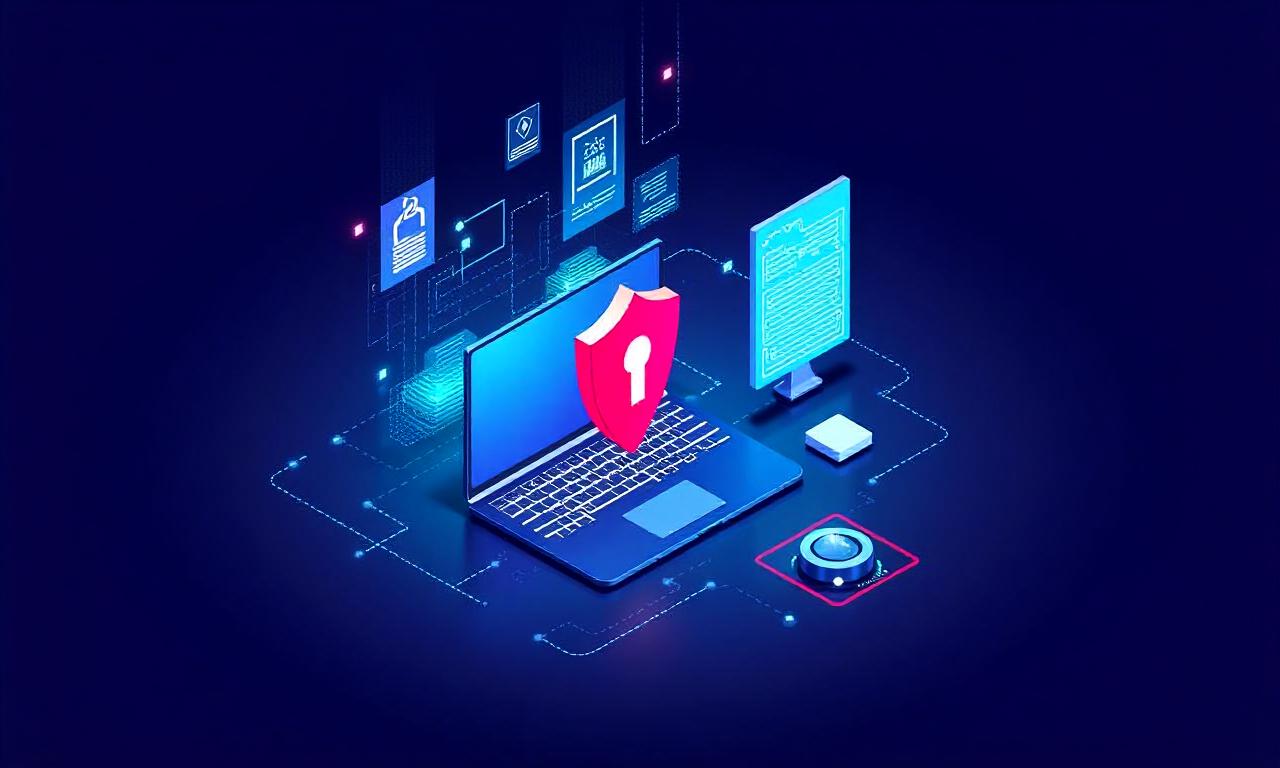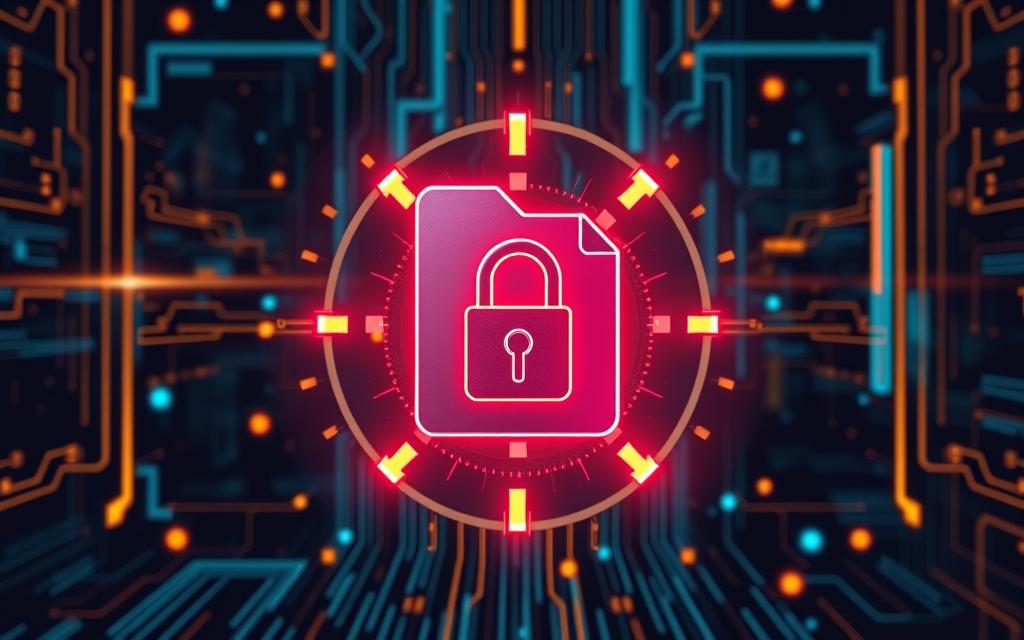Welcome to our comprehensive guide on the deep web and the dark web. In this article, we will dive deep into the comparisons and distinctions between these two intriguing aspects of the internet. By understanding the difference between the deep web and the dark web, you will gain valuable insights into their unique functions and how they impact online privacy.
The deep web, often confused with the dark web, encompasses all the web pages that search engines cannot index. These hidden pages make up a significant portion of the internet, where sensitive information like medical records, classified documents, and academic research resides. On the other hand, the dark web refers to a portion of the deep web that requires specific software or authentication to access.
So, what sets the deep web apart from the dark web? The answer lies in their accessibility and the nature of the content they host. While the deep web is comprised of legitimate and legal content that may be inaccessible through traditional search engines, the dark web is known for harboring illicit activities, such as illegal marketplaces, hacking forums, and other nefarious endeavors.
Throughout this article, we will explore the nuances of the deep web and the dark web, equipping you with knowledge to differentiate between the two. Whether you’re a curious internet user or a professional seeking to understand the implications of these hidden realms, this guide will provide you with valuable insights.
Join us as we embark on this journey to demystify the deep web and the dark web and discover their impact on online privacy. By the end, you’ll be equipped with the necessary information to navigate the complexities of the internet and protect your personal information.
Table of Contents
ToggleUnderstanding the Deep Web

When it comes to the vast and hidden corners of the internet, the deep web plays a crucial role. Unlike the surface web, which is accessible through search engines, the deep web remains hidden from conventional browsing methods. It encompasses content and data that are not indexed or easily accessible via search engines. To gain a better understanding of the deep web, let’s explore its relationship with the surface web and the dark web.
The surface web, also known as the visible web, consists of websites that can be accessed through search engines like Google and Bing. These sites are indexed and ranked based on their relevance to search queries. The surface web typically includes public websites, news articles, blogs, and other freely accessible content.
In contrast, the deep web represents the vast majority of internet content that remains unindexed by search engines. It includes protected resources, private databases, academic journals, corporate intranets, and more. While the deep web is not inherently nefarious, its hidden nature makes it a breeding ground for illicit activities. It is important to note that not all activity within the deep web is illegal, as it also serves legitimate purposes such as secure communication, file sharing, and anonymous browsing.
To provide a visual representation of the deep web’s scope, here is an informative infographic comparing the surface web, deep web, and dark web:
| Surface Web | Deep Web | Dark Web |
|---|---|---|
| Accessible with search engines | Not indexed by search engines | Requires special software to access |
| Publicly available content | Protected resources and private databases | Hidden and anonymous |
| Legal and legitimate activities | A mix of legal and illegal activities | Hosts illegal activities, black markets |
Demystifying the Dark Web
As we continue our exploration of the hidden corners of the internet, it’s time to shed some light on the mysterious reputation of the dark web. Contrary to popular belief, accessing the dark web is not as complicated as it may seem. Although it requires specialized software and can be risky, anyone curious enough can gain entry with a few simple steps.
Before we delve into the methods of accessing the dark web, let’s first distinguish it from the deep web. While the deep web refers to the vast expanse of the internet that is not indexed by search engines, the dark web is a small subset of the deep web that requires specific software, such as the Tor browser, to access.
There are several ways one can access the dark web, but using the Tor network remains the most popular and widely used method. Tor, short for The Onion Router, is a free and open-source software that routes internet traffic through a network of relays and encrypts it multiple times, ensuring anonymity and security.
Navigating Reddit’s Deep Web and Dark Web Communities
When it comes to discussions and forums related to the deep web and the dark web, Reddit is a platform with a plethora of communities. Here, you can find insightful discussions, guides, cautionary tales, and resources shared by individuals who have explored these hidden realms.
To access deep web and dark web-related discussions on Reddit, simply search for relevant keywords like “deep web” or “dark web” in the search bar. You can explore various subreddits dedicated to these topics, such as r/Tor, r/deepweb, and r/DarkNetMarkets. Remember to exercise caution and skepticism while engaging in these discussions, as misinformation and scams can be prevalent.
In conclusion, the dark web, albeit shrouded in mystery, is accessible to those who seek it. Utilizing software like Tor and exploring discussions on platforms like Reddit can provide valuable insights into this hidden realm of the internet. However, it’s important to navigate with caution and adhere to ethical practices. Now that we’ve unraveled the enigma of the dark web, let’s move on to exploring its impact on online privacy.
Impact on Online Privacy
As we explore the deep web and the dark web, it becomes evident that these hidden corners of the internet can have significant implications for online privacy. With their secretive nature and encrypted communications, both the deep web and the dark web create an environment that can potentially compromise personal information.
The deep web, which encompasses the majority of the internet, consists of unindexed and inaccessible content. While not inherently malicious, the deep web provides a breeding ground for cybercriminals to engage in illegal activities, such as selling stolen data or distributing malware. This poses a serious threat to online privacy, as users may unknowingly stumble upon sensitive information or fall victim to cyberattacks.
The dark web, on the other hand, takes secrecy to a whole new level. Accessible only through specific software like Tor, the dark web harbors illicit marketplaces, forums, and websites that thrive on illegal activities. From illegal drug trade to hacking services, the dark web presents numerous dangers to individuals’ privacy and security. Personal information, including login credentials and financial details, can be bought and sold by cybercriminals on the dark web, leading to severe consequences for innocent users.
To protect oneself from the privacy risks associated with the deep web and the dark web, users must take certain precautions. First and foremost, it is essential to exercise caution when browsing the internet and refrain from accessing unknown or suspicious websites. Installing reliable security software and keeping it updated can help detect and prevent potential threats. Additionally, using strong and unique passwords, enabling two-factor authentication, and regularly backing up data can enhance online privacy defenses.
Measures to Protect Online Privacy:
- Avoid visiting unknown or suspicious websites on the surface web
- Install and update reliable security software
- Use strong and unique passwords
- Enable two-factor authentication
- Regularly back up important data
By understanding the potential risks and taking these precautionary measures, individuals can navigate the complexities of the deep web and the dark web while safeguarding their online privacy.
| Deep Web | Dark Web |
|---|---|
| Majority of the internet | Specific software (e.g., Tor) required for access |
| Unindexed and inaccessible content | Illicit marketplaces, forums, and websites |
| Potential for cybercriminal activities | Breeding ground for illegal activities |
| Can compromise online privacy | Presents significant privacy and security risks |
Conclusion
In conclusion, the deep web and the dark web are two distinct entities that exist alongside the surface web. Understanding their characteristics and functions is essential for navigating the complexities of the internet in a secure and informed manner.
The deep web refers to the vast portion of the internet that is not indexed by search engines. It includes private databases, academic resources, subscription sites, and more. While it may seem intimidating, the deep web is mostly harmless and not inherently illegal.
On the other hand, the dark web is a hidden network that requires special tools to access. It is a hub for illicit activities, such as illegal marketplaces, cybercrime forums, and unauthorized content. Users should exercise extreme caution when venturing into the dark web to protect their online privacy.
To safeguard personal information and ensure online privacy, it is crucial to take proactive measures. These include using strong, unique passwords, encrypting communications, regularly updating security software, and being mindful of the websites visited.
FAQ
What is the difference between the deep web and the dark web?
The deep web refers to any part of the internet that is not indexed by search engines, making it inaccessible through traditional search methods. On the other hand, the dark web is a small subsection of the deep web that is intentionally hidden and can only be accessed through specialized software, such as Tor.
How can I access the deep web or the dark web?
To access the deep web, you can utilize certain methods such as browsing websites with URL extensions like .onion or using password-protected databases. However, accessing the dark web requires using anonymizing software like Tor, which allows you to navigate and access websites on the dark web anonymously.
How can I distinguish between the deep web and the dark web?
The key distinction between the deep web and the dark web lies in their accessibility. The deep web refers to all unindexed content on the internet which includes legitimate sites like online banking portals and academic databases. The dark web, on the other hand, is a subset of the deep web that contains illicit or illegal content, such as black markets and forums for illegal activities.
What is the impact on online privacy when exploring the deep web and the dark web?
Exploring the deep web and the dark web carries potential risks to online privacy. These hidden corners of the internet can expose sensitive personal information if certain precautions are not taken. It is crucial for individuals to be cautious and use anonymizing tools like VPNs, Tor, or other security measures to protect their personal information when accessing these realms.
















